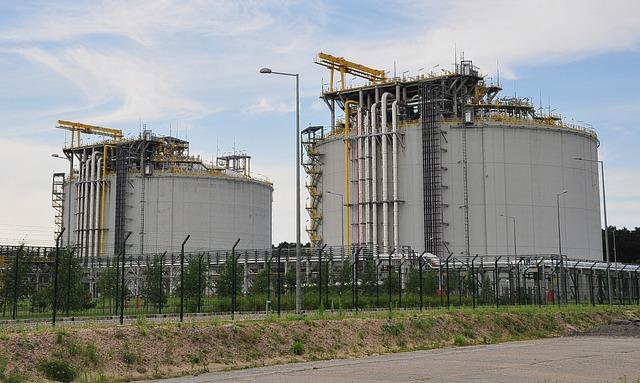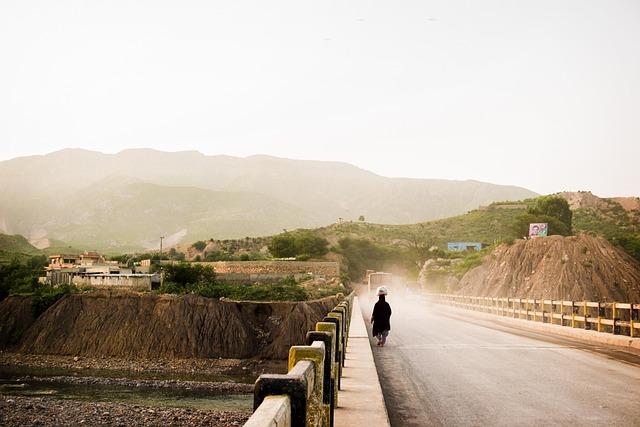Pakistan’s Path to Economic Resilience Through Strategic Trade
In an increasingly interconnected world, where fortunes are often tied to the ebb and flow of global markets, nations are compelled to rethink their economic strategies. For Pakistan, a nation rich in resources yet grappling with multifaceted challenges, the quest for economic resilience has taken center stage. At the heart of this endeavor lies the concept of strategic trade—a proactive approach that transcends mere transactional exchanges and seeks to foster sustainable growth through calculated partnerships and innovative policies. As Pakistan stands at a crossroads, navigating the complexities of domestic needs and international ambitions, it is embarking on a journey that could redefine its economic landscape. This article delves into the crucial role of strategic trade in bolstering Pakistan’s resilience, exploring the potential avenues, partnerships, and policies that could help the nation not only withstand external shocks but also thrive in a competitive global economy.
Embracing Diversification: Strengthening Pakistans Export Portfolio
As global markets evolve, so too must Pakistan’s approach to international trade. By embracing diversification, Pakistan can strengthen its export portfolio and insulate itself from economic shocks. Strategically targeting new markets and offering a broader range of products will not only mitigate risks but also unlock potential opportunities. Industries such as technology, agriculture, and textiles stand to gain immensely from a more varied export strategy, allowing Pakistan to tap into emerging trends and consumer demands. The integration of local artisans and small businesses into the global supply chain can further amplify this transition, empowering communities and driving sustainable development.
Furthermore, establishing strong trade relationships with a diverse array of countries can provide Pakistan with a more stable economic footing. By focusing on bilateral agreements and fostering trade partnerships across regions, the nation can diversify its trade routes and reduce dependency on any single market. This holistic approach will enable Pakistan to capitalize on its competitive advantages while staying resilient against fluctuations in global demand. Essential measures may include:
- Investing in research and development to innovate products and services
- Leveraging technology to enhance logistics and supply chain efficiency
- Promoting local brands on international platforms
| Sector | Opportunities | Key Markets |
|---|---|---|
| Technology | Software Development, IT Services | North America, Europe |
| Agriculture | Organic Farming, Value-Added Products | Middle East, Asia |
| Textiles | Sustainable Fabrics, Fashion Design | Europe, North America |

Harnessing Regional Partnerships: Unlocking Trade Opportunities in South Asia
South Asia is a vibrant tapestry of cultures, economies, and shared interests that can serve as a cornerstone for sustainable growth through strategic trade partnerships. By fostering collaborations among neighboring countries, Pakistan can unlock a myriad of opportunities that not only bolster its own economy but also enhance regional stability. Key areas to explore include:
- Cross-border trade facilitation to reduce barriers and streamline customs procedures.
- Joint ventures and investments in high-demand sectors such as agriculture, textiles, and technology.
- Cultural exchanges and trade missions that build trust and mutual understanding among business communities.
- Infrastructure development to improve connectivity via road, rail, and maritime routes.
Additionally, the integration of trade agreements can amplify these efforts. Countries can explore synergies that leverage their respective strengths, creating a more cohesive market that encourages foreign investment. For instance, establishing a regional trade organization can provide the framework for cooperative policies while promoting essential sectors such as renewable energy and information technology. The following table illustrates potential collaborative projects across South Asia:
| Country | Sector | Project Idea |
|---|---|---|
| Pakistan | Agriculture | Joint agricultural research and development initiatives. |
| India | Technology | Silicon Valley-style tech parks to stimulate innovation. |
| Bangladesh | Textiles | Collaborative garment manufacturing and export initiatives. |
By capitalizing on these strategic partnerships, Pakistan can pave a resilient path toward economic growth, fostering a spirit of cooperation that benefits not only its economy but the entire South Asian region. Embracing these initiatives entails a commitment to transparency, enhanced regulatory frameworks, and inclusive policies that ensure all stakeholders are equipped to thrive in a globally competitive landscape.

Innovation and Technology: Catalyzing Growth in Pakistans Trade Sector
In recent years, Pakistan has witnessed a transformative shift in its trade sector, largely propelled by innovation and technology. These advancements have not only modernized traditional practices but have also opened doors to new markets and enhanced efficiency across various supply chains. By leveraging digital tools and platforms, Pakistani businesses can now engage with global consumers more effectively. This has led to the development of a robust e-commerce ecosystem that supports small and medium-sized enterprises (SMEs) in reaching a broader audience. Notable technologies such as blockchain for transparency and artificial intelligence for data analytics are paving the way for smoother transactions and improved customer experiences.
The integration of technology in the trade sector has also enabled better data-driven decision-making. Businesses are increasingly utilizing software solutions to analyze market trends and consumer behaviors, giving them a competitive edge. Additionally, Pakistan has invested in developing its infrastructure, including smart ports and logistics systems, which are crucial for facilitating international trade. The government and private sector are collaborating to create an environment conducive to innovation, highlighted by initiatives like tech incubators and trade fairs that showcase local startups. As these efforts continue to expand, they are expected to significantly boost the country’s trade volume and contribute to sustainable economic growth.

Policy Reforms and Infrastructure Development: Building a Foundation for Economic Resilience
The cornerstone of Pakistan’s journey towards economic resilience lies in the implementation of strategic policy reforms coupled with robust infrastructure development. A comprehensive approach that harmonizes trade regulations with modern infrastructure can significantly enhance the country’s competitive edge. By prioritizing sectors such as agriculture, textiles, and technology, the government can create a fertile ground for investment and innovation. Key reforms should focus on streamlining customs processes, simplifying tax regimes, and enhancing digital connectivity, which would not only facilitate smoother trade flows but also attract foreign direct investment. Furthermore, establishing partnerships between the public and private sectors can lead to more efficient resource utilization and infrastructure modernization.
To ensure long-term economic sustainability, it is imperative to invest in critical infrastructure projects such as transportation networks, energy systems, and digital frameworks. These elements will play a pivotal role in underpinning trade activities and accelerating economic growth. A clear strategy must include:
- Upgrading transport routes to connect major trade hubs efficiently.
- Developing renewable energy initiatives to reduce reliance on imports and ensure energy security.
- Bolstering digital infrastructure to support e-commerce and online trade platforms.
Such investments will not only enhance the pragmatic realities of trade but will also foster a more resilient economy capable of withstanding global fluctuations. When coupled with an open dialogue among stakeholders, these efforts can set the stage for a thriving economic landscape, adaptable to future challenges.
The Way Forward
as Pakistan charts its course toward economic resilience, strategic trade emerges as a beacon of opportunity. The nation stands at a pivotal crossroads, where collective action and innovative policies can forge pathways to sustainable growth. By embracing its geographical advantages, nurturing trade relationships, and investing in key sectors, Pakistan not only has the potential to transform its economic landscape but also to enhance its standing on the global stage. As the nation weaves together its rich history and vibrant resources, the fabric of a resilient economy awaits to be fully realized. The journey ahead may be fraught with challenges, yet with a steadfast commitment to strategic trade, Pakistan can navigate these waters and emerge stronger, more interconnected, and poised for a prosperous future.



